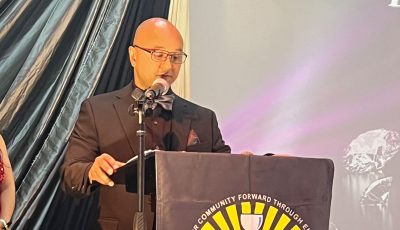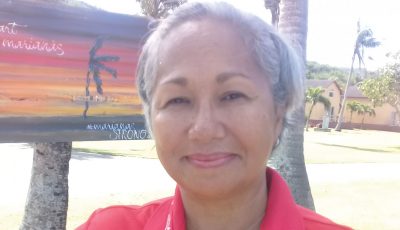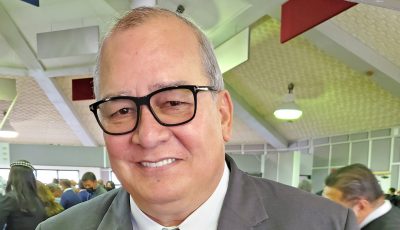Prevailing wage also needed for CW petitions
CNMI employers must also obtain a prevailing wage aside from having a temporary labor certificate from the U.S. Department of Labor when they submit their CNMI-Only Transitional Worker or CW-1 petitions. These are the requirements stated in the interim final rule for temporary employment in the CNMI released by the Labor department.
The IFR takes effect on April 4, 2019 at 12am (eastern time), the same day when U.S. Citizenship and Immigration Services begins accepting CW-1 petitions. CW-1 applications won’t be accepted until the IFR takes its full effect on the said date.
The Northern Marianas Business Alliance Corp. stated that there are enough CW-1 visas for fiscal year 2020, which starts on Oct. 1, 2019 since USCIS indicated only 9,000 slots of the 13,000 available in the current FY were utilized.
The Labor department came out with the IFR based on the Northern Mariana Islands U.S. Workforce Act of 2018 or Public Law 115-218 where Section 3 (2)(A) states that a TLC is required when a petition is filed while a prevailing wage survey [Section 3 (2)(B)] is also needed to bring about the TLC requirement.
The CNMI Department of Commerce, in cooperation with the Saipan Chamber of Commerce and the NMBAC, has obtained the services of Hive Analytics and DataTalks to assist them in conducting a PWS by sector in the CNMI, a task they hope to accomplish soon in order to establish a CNMI PWS.
Section 3 (2) [Protection for U.S. Workers] (B)(ii) P.L. 115-218 indicates that the average salaries followed in Guam will be the alternative basis for an occupation in the CNMI in the absence of a PWS for the Commonwealth.
The IFR is part of the process where a CNMI employer must obtain a prevailing wage and a TLC from U.S. Labor, which will be used as their petition to the U.S. Department of Homeland Security to employ foreign workers under the CW-1 program. The TLC would confirm that there’s an insufficient number of qualified U.S. workers for a particular job in the CNMI.
DHS may deny the CW-1 applications unless an employer or petitioner applied for a TLC to the Labor department that confirms the CNMI has not enough U.S. qualified workers on the said occupation, which would require a guest worker to fill in the position.
Employers must then submit their petitions 120 days before the date when the foreign worker’s services will be needed or 180 days, in case of renewals of already hired guest workers, before the expiration of the CW-1 work permit.
The IFR, according to the Labor department, would help establish a robust use of domestic recruitment and increase the chances of U.S. workers being hired to occupy positions that would otherwise go to a foreign worker.
“The rule also establishes important protections for both CW-1 and U.S. workers in corresponding employment and ensures that no U.S. worker is placed at a competitive disadvantage compared to a CW-1 worker or is displaced by a CW-1 worker,” said the Labor department in a statement.
“Several provisions will improve transparency between employers and workers, such as requiring employers to provide workers with detailed earnings statements on or before each payday, disclose all deductions from pay, and a copy of the work contract in a language understood by the workers.”
U.S. Labor is also authorized to impose sanctions to employers that would violate the requirements to protect the program from fraud or any form of abuse. Sanctions include intensive or assisted recruitment requirements, revocation of a granted TLC, and debarment from all employment-based immigration for up to five years.
Webinars
The Office of Foreign Labor Certification, a division of the Employment and Training Administration of the Labor Department, will be holding webinars on March 28 and April 2, 2019 for CNMI employers to provide guidelines and additional information on the new system.
The webinars, a part of OFLC’s public awareness campaign, would provide technical assistance to CNMI employers or any of their authorized representatives—lawyers or agents—in completing and submitting CW-1 applications for TWC’s.
The March 28 and April 2 webinar is from 8am to 9am Chamorro Standard Time or March 27 and April 1 from 6pm to 7:30pm Eastern Standart Time.
Teleconference for both meetings can also be done through a toll free number at 888-603-7040 or toll free at 1-312-470-0014.
The webinar links for March 28 (CST) is https://dolevents.webex.com/dolevents/onstage/g.php?MTID=ec8b22804075b9d3689d107f3b6ef5f1c and on April 2 (April 1 EST) at https://dolevents.webex.com/dolevents/onstage/g.php?MTID=e236a06b6c9f922d90384d08b3f60a6ce.



























